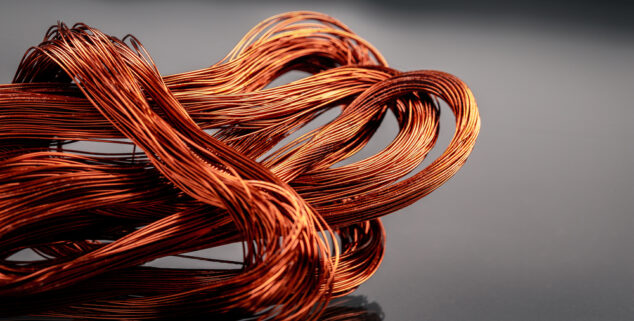Opinion
Copper recycling is critical for a green economy and the environment
 Recycled copper, image by PitukTV
Recycled copper, image by PitukTVOPINION – Historically, “copper” pennies used to be 95 percent copper. Now they are just 2 percent. Why? Copper is now too valuable to be used to make pennies, millions of which are simply thrown away or lost by people every year due to their low cash value. Due to its high conductivity, copper is needed for renewable-energy technologies, energy-efficient systems, and sustainable infrastructure, making it essential for our societal transition to cleaner energy and reduced carbon emissions.
Copper is a finite resource and is in short supply. All the copper mines in the world – which are concentrated mainly in just seven countries, including the U.Ss – can’t produce enough copper ore to meet the current demand for this valuable metal. Electrification is predicted to increase annual copper demand to 36.6 million metric tons by 2031, compared to 25.3 million tons in 2021, while the supply of mined copper ore is projected to be only 30.2 million tons by 2031, leaving a 6.4-million-ton shortfall between supply and demand.
This is why copper recycling is an important part of the copper supply-chain and the circular economy, wherein resources are kept in use for as long as possible. Copper is one of the few materials that can be recycled over and over again without any loss in usability. Recycled copper and virgin copper are interchangeable and can both be used in the manufacture of new copper products.
Copper is widely used and abundantly present in commercial office buildings, manufacturing plants and residences. The typical single-family home contains more than 400 pounds of copper on average. The typical U.S.-built automobile contains more than 50 pounds of copper. And California’s zero-emissions-vehicles mandate, kicking in in 2035, will dramatically increase the demand for copper, since copper wire is a significant element in electric vehicles. Electric vehicles have copper rotors, as well as copper wire that connects the batteries to the motor.
So how does used copper get recycled and re-used? When vehicles, industrial equipment, and household appliances containing copper, such as refrigerators, washing machines, air conditioners and heat pumps, and nearly everything else you can think of containing copper reach the end of their useful life, a tremendous opportunity for “urban mining” emerges, and California’s metal-recycling industry jumps in to play a crucial role in harnessing this potential, recovering vast amounts of copper from these end-of-life items.
Through state-of-the-art shredding, processing and sorting technologies, the metal-recycling industry recovers millions of pounds of copper each year and returns this essential commodity back to manufacturing operations to make the next generation of low-carbon energy solutions, including electric vehicles, battery-storage infrastructure and solar panels. The metal-recycling industry also collaborates with research institutions and universities to explore new recycling methods and develop sustainable practices. Continued investment in research and development ensures that the metal-recycling industry remains at the forefront of technological progress, enabling higher recovery rates and greater environmental benefits.
Moreover, these recycling processes are purely mechanical, involving no use of heat, chemicals, or hazardous materials that could adversely affect public health or the environment. And they are highly efficient: current recycling technology has already achieved the ability to separate copper elements as fine as a human hair from other materials.
The metal-recycling industry is a key player in the effort to promote a circular economy. By recovering and recycling all types of metals, and specifically copper, the metal-recycling industry closes the loop, transforming end-of-life products into valuable raw materials. Recycling reduces dependency on virgin materials and minimizes waste generation. Copper recovery through metal recycling also avoids the environmental impacts associated with mining raw copper ore.
Like so many recyclers, our metal-recycling industry is off the radar screen for most Californians. But this important industry plays an essential role in the sustainability and growth of a greener, more circular economy for our state, and we all have a vested interest in its health and strength.
State Sen. Benjamin Allen is chair of the Senate Environmental Quality Committee. Former state Sen. Robert Wieckowski also chaired the Senate Environmental Quality Committee.
Want to see more stories like this? Sign up for The Roundup, the free daily newsletter about California politics from the editors of Capitol Weekly. Stay up to date on the news you need to know.
Sign up below, then look for a confirmation email in your inbox.

Leave a Reply